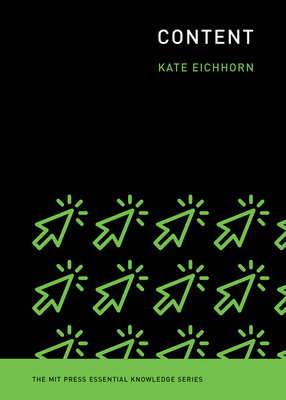È un libro chiaro e di facile letture.
Si parte dal definire cosa si intenda oggi per “contenuto” per individuare la sua caratteristica peculiare.
Secondo l’autrice è contenuto tutto ciò che circola, senza porsi la questione del valore informativo, della qualità o della provenienza. Siamo in un campo che per generare grossi introiti la quantità conta più della qualità; è per questo motivo che è nata ed è giusto parlare di industria dei contenuti.
Quando si parla di industria dei contenuti lo scenario non è roseo. L’accesso all’informazione oggi è semplificato, siamo completamenti assuefatti dalle news, e se in passato un articolo giornalistico poteva tenere banco per una settimana da pubblicazione a pubblicazione oggi è questione di minuti prima della prossima news.
Va da se che a questi ritmi le notizie sono per forza di cosa scadenti fino a degenerare in fakenews tanto per attirare click e monetizzare. Purtroppo il sistema è inquinato dal danaro, se non ci fossero possibilità di guadagno credo che nessuno si metterebbe a perdere le proprie giornate e riempire il cyberspazio di spazzatura. Ma il consumatore, il cittadino può difendersi da questo inquinamento testuale e visivo? Credo di si, ma ci vuole un’alfabetizzazione dei contenuti, la capacità di distinguere il vero dal falso, di pesare le fonti, e non di prendere tutto ciò che ci arriva come oro colato, ma la cosa più importante è il senso critico per distinguere un fatto da un opinione.
Il libro si conclude con delle previsioni sul futuro dell’industria dei contenuti. Già oggi con l’intelligenza artificiale molte pratiche sono state automatizzate, forse sarà proprio un algoritmo efficace a rendere internet un posto più pulito,questo è dura da prevedere.
La cosa che mi premi è l’utilizzo dell’automazione per produrre materiale di intrattenimento, ossia delegare ad un’intelligenza artificiale la stesura di libri, film, copioni. Io sono dell’opinione che l’arte vada fatta dall’uomo per l’uomo, è qualcosa di terapeutico. In una società ideale le macchine dovrebbero svolgere i lavori pesanti e gli esseri umani occuparsi di fare arte ed avere compiti semplici da supervisore. Ma a quanto sembra la strada che stiamo intraprendendo è diversa.
Il libro seppur breve parla anche di molto altro. Un punto che ho dimenticato di menzionare è che oggi più che i produttori di contenuti guadagna chi il contenuto è capace di diffonderlo; in più noi stessi siamo piccolo produttori di contenuti, è come se lavorassimo non pagati. La questione è intricata, e ciò accade quando concetti semplici attecchiscono e si espandono.
È un libro che vi consiglio, breve ma informa.

